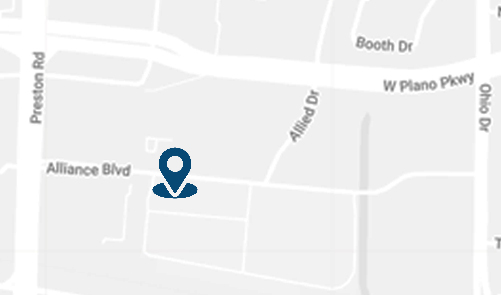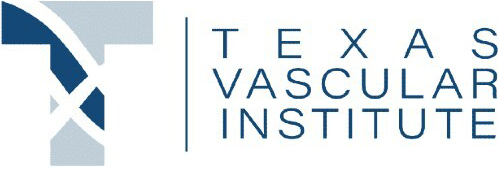By: Dr. Dev Batra | 01.29.23
May-Thurner syndrome (MTS) is also referred to as iliac vein compression syndrome or Cockett’s syndrome. It affects two blood vessels in the pelvic area, one of which goes into your legs and one of which runs out of your legs. While it may cause no symptoms initially, it may increase your risk of deep vein thrombosis (DVT) in your left leg.
At Texas Vascular Institute, located in Dallas and Hurst, Texas, interventional radiologist Dr. Dev Batra and his team handle all manner of blood vessel problems, including May-Thurner syndrome and DVT. Because many of our patients aren’t familiar with either condition, we’ve put together this guide to help you understand your risks.

A brief guide to your circulatory system
Your circulatory system’s primary function is to transport oxygen and nutrients to the tissues to keep them healthy. To do that, your heart regularly contracts, pushing oxygenated blood through the arteries to every part of your body. Once the blood is depleted of nutrients, the veins return it to the heart to start the process over again.
In some ways, veins have the harder job because they have to fight the downward pull of gravity. To compensate, your thigh and calf muscles contract, squeezing the veins and forcing the blood along an upward course. In addition, the veins contain one-way valves that prevent blood from flowing backward.
However, if the valves become damaged, blood flow becomes sluggish, and it can pool around the damaged valves. That state is called venous insufficiency, and it’s often the first stage of vein disease. It can lead to varicose veins, which can also lead to further vein problems.
What happens in May-Thurner syndrome?
Arteries and veins sometimes cross over each other’s paths. Normally, that isn’t a problem. However, if you have May-Thurner syndrome, it becomes an issue.
MTS involves your right iliac artery — the main artery that transports blood into your right leg — and the left iliac vein — the main vein that transports blood from your left leg up toward your heart.
When you have MTS, the right iliac artery squeezes the left iliac vein as they cross in your pelvic region. Because of the pressure, blood slows as it moves through the left iliac vein like water does when you step on a hose.

With sluggish flow, blood is more likely to pool and clot, increasing your risk for DVT. Unlike superficial clots, DVT clots are a significant health risk. First, the clot further restricts blood flow in the leg. Furthermore, the clot may detach from the vein, or a piece of it may break off and travel to the lungs. That is known as a pulmonary embolism — a life-threatening condition.
Most people with MTS don’t experience symptoms unless it causes DVT. However, because the syndrome leads to inefficient blood flow, some people may experience symptoms without DVT.
These symptoms occur mostly in the left leg and can include any combination of the following:
- Pain
- Leg pain with walking (claudication)
- Swelling
- A “heavy” sensation in the leg
- Varicose veins
- Skin discoloration (venous stasis dermatitis)
- Leg ulcers
Women may also develop pelvic congestion syndrome, a case of varicose veins in the pelvis. The main symptom of PCS is pelvic pain.

Treating MTS
Treating MTS focuses on improving blood flow in the left iliac vein, which can also lower your risk for DVT. That can be accomplished by:
Angioplasty and stenting
Our team inserts a small catheter with a balloon on its end into the vein. Dr. Batra inflates the balloon to open the vein, then places a small mesh tube (stent) to keep the vein open. Finally, he deflates and removes the balloon but leaves the stent in place.
Bypass surgery
Our team uses a bypass graft to reroute blood around the compressed part of the vein.
Repositioning the right iliac artery
Our team moves the right iliac artery behind the left iliac vein so it doesn’t put pressure on it. In some cases, Dr. Batra may place tissue between the left iliac vein and the right artery.
Treatment for DVT includes blood thinners, clot-busting medications, and a vena cava filter that prevents clots from traveling to the lungs.
If you haven’t had a vein checkup recently, it’s time to come into Texas Vascular Institute for an evaluation. Give us a call at either our Dallas or Hurst, Texas, location, or book your appointment online.
Read more blogs
Why Are My Veins Blue?
Wondering why your veins look blue under your skin? Learn the science behind vein color, how light affects what you see, and what it means for your health.
10 Warning Signs Of Poor Circulation And How To Fix It
Have you ever noticed your feet always feel cold, or your legs cramp up when walking? These could be warning signs of poor circulation, a condition that can impact your daily life and overall health.
Leg Pain Keeping You Up at Night?
Are restless, aching legs keeping you from a good night’s sleep? Nighttime leg pain can interfere with your rest, affecting your health, mood, and ability to take on daily activities. While there can be various causes, nighttime leg pain - especially when accompanied by feelings of heaviness, throbbing, or itchiness - could point to a vein issue.
WHAT OUR PATIENTS
have to say
Texas Vascular Institute always appreciates feedback from our valued patients. To date, we’re thrilled to have collected 378 reviews with an average rating of 5 out of 5 stars. Please read what others are saying about Texas Vascular Institute below, and as always, we would love to collect your feedback.
Leave a Review
Amazing Practice
I'm very particular with my Healthcare and tend to be cautious with referrals to specialists. This office is amazing from the first point of contact. Their staff are friendly, professional and highly knowledgeable. Then the Dr is just as amazing as his staff, absolutely brilliant. Office manager Jessica has this office running like a well oiled machine and does so with a smile, an air of confidence, kindness and professionalism. Love this practice!!
- Richard G.

Beyond Thankful
Dr Batra and his staff are amazing! We are so grateful to have found him. Everyone is so kind and so caring and Dr Batra explains everything so well and does procedures with excellence. Beyond thankful to be under their care!!!
- Bitsy P.

Gold Standard
This is a gold standard for how a medical practice should be run. I was promptly seen at my scheduled time, my ultrasound was thorough and I received plenty of attention and care from the staff and Dr.Batra.
- Weronika L.
INSURANCE
We accept most major insurance plans. Please contact the medical office for all insurance related questions.









8330 Meadow Rd #100
Dallas, TX 75231
For Appointments: 972-798-4710
General Inquiries: 972-646-8346

809 West Harwood Rd, Suite 101,
Hurst, TX 76054
For Appointments: 972-798-4710
General Inquiries: 972-646-8346

4716 Alliance Blvd Suite #180,
Plano, TX 75093
For Appointments: 972-798-4710
General Inquiries: 972-646-8346

